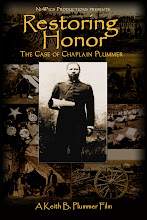 Sidney J. Boney and I talked at his home in Atlanta on May 30, 2009. Mr. Boney quietly joined the movement while he attended college. He calls himself a weekend agitator because his participation in the movement mostly occurred on the weekends. He would drive to wherever he was needed, do what was asked of him, and drive back to college for Monday classes. Mr. Boney initially kept his participation from his parents because he wasn't sure if they would understand. Eventually, his parents understood and Mr. Boney continued to work for the movement.
Sidney J. Boney and I talked at his home in Atlanta on May 30, 2009. Mr. Boney quietly joined the movement while he attended college. He calls himself a weekend agitator because his participation in the movement mostly occurred on the weekends. He would drive to wherever he was needed, do what was asked of him, and drive back to college for Monday classes. Mr. Boney initially kept his participation from his parents because he wasn't sure if they would understand. Eventually, his parents understood and Mr. Boney continued to work for the movement.Mr. Sidney J. Boney is one of many weekend foot soldiers who strived to end segregation.







.jpg)





.jpg)
